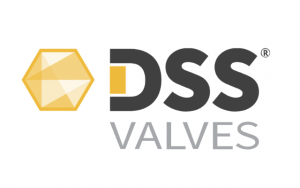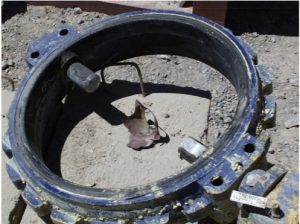Most of us know when an application is severe. But what is it that makes it severe for a valve? Defining Severe Service Valves (SSVs) objectively is an important tool in attaining improved process control, safety, profitability, and environmental stewardship.
SSVs can be defined as industrial valves specifically designed to perform without fail in the most extreme conditions. These conditions often include a mix of differential pressure scenarios, corrosive materials, solids in solution or suspension, frequent or infrequent cycling, and extreme temperatures.
It is important to recognize that there are a variety of different types of Severe Service Valves. Broadly speaking, SSVs are made up of the following three subcategories:
- Severe Service Control Valves (SSCVs)
- Severe Service Isolation Valves (SSIVs)
- Severe Service Check Valves (SSCKVs)
To help further uniform the nomenclature used for these subcategories, CGIS recommends the following definitions and abbreviations. We’ve also included example use cases and manufacturers for your reference.
Severe Service Control Valve – SSCV
A Severe Service Control Valve can be defined as a control valve that performs within a process where one or more of the identified thresholds is surpassed. Typical thresholds include, but are not limited to:
- cavitation σ > σi
- erosive flow >8m/s inlet
- high noise >85 dB
Sever Service Control Valves are commonly found in resource extraction and purification; typically where a process flows through a pressure piping system. Flowserve specializes in SSCVs, offering several products tailored to a large variety of applications. Unique characteristics of Flowserve’s Survivor and Multi-Z are designed to handle solids in solution, 3-phase flows and slurries, and survive the process for extended periods of operation.
Severe Service Isolation Valve – SSIV
A Severe Service Isolation Valve can be defined as an isolation valve that performs within a process where one or more of the identified thresholds is surpassed. Typical thresholds include, but are not limited to:
- solids deposition >1mm/year
- high alloy construction B16.34 > Group 2.4
- Slurry 10% solids >20 barG
Severe Service Isolation Valves are also commonly found in resource extraction and purification, particularly in the mining and oil & gas industries. ValvTechnologies specializes in SSIVs and offers the highest quality isolation despite the media. A unique characteristic of ValvTechnologies V series integral seated fixed carbide coated ball valves is neither a floating ball nor trunnion design, which can handle all concentrations of solids. This is important as solids cause seat damage and loading in floating and trunnion ball valve designs.
Severe Service Check Valve – SSCKV
A Severe Service Check Valve can be defined as a check valve that performs within a process that it requires flow sizing to perform at its most efficient condition. SSCKVs are most commonly used in manufacturing where processes are extreme and variable.
Hy-Grade builds some of the world’s finest SSCKVs with advanced engineering features; one of which is that Hy-Grade manufacturers from solid round bar or ring forgings, giving them the ability to offer “sized” venturi inlets for the application as opposed to the end user selecting by the size of the pipe the SSCKV will be installed in. This is important because most check valves are oversized and fail prematurely due to excessive wear.
If you have any questions about Severe Service Valves, visit www.cgis.ca/severe-service-valves.



